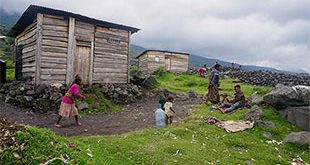
Providing young African scholars opportunity to offer policy oriented solutions to development challenges
COMMENT| Seife Ayele, Samir Khan, and Jim Sumberg | With two thirds of Africa’s population under 25 years of age, the continent’s youth may be its biggest competitive advantage. After all, countries’ long-term economic prospects are typically linked to the availability of a young, mobile labour force. A recent report by the Mo Ibrahim Foundation concluded that ten of the world’s 25 fastest-growing economies between 2004 and 2014 were in Africa. And yet, with many millions of young people unemployed in 2015, and many more underemployed, Africa has so far failed to reach its full potential.
The continent’s youth-employment challenge persists for many reasons. For starters, youth-focused policies and interventions are limited across the region. Programs that do exist lack adequate coordination, and often fail to incorporate lessons and feedback. Employment strategies have also tended to be largely theory-based; while well meaning, they can fail to deliver results when put into practice.
But in our view, an additional, often overlooked weakness is an academic environment that limits contributions from Africa’s youngest scholars – students just finishing their PhDs – who may in fact hold the keys to putting the continent to work. Experience shows that young African doctoral students produce research that is crucial to addressing the continent’s development challenges. And yet, far too often, these young minds lack the training, access, and support they need to bring their ideas from the field to the policymaking arena.
That is why we have joined a global initiative to provide young African researchers an opportunity to engage in policy-oriented solutions, through research collaboration and publishing opportunities. Launched in 2016 by The MasterCard Foundation and the Institute of Development Studies (IDS) in the United Kingdom, the Matasa Fellows Network aims to bring together the continent’s young academic talent to help solve Africa’s youth employment challenge.
Because that challenge is closely connected to other issues – like migration, conflict, rural development, and gender – policymakers must cast a wide net when considering solutions. Our fellows’ research on these issues poses vital questions to governments and development funders about how to design solutions and implement them in ways that ensure accountability.
The first cohort of fellows, who recently published their findings in the IDS Bulletin, included ten African doctoral students working in the social sciences. With coaching and mentorship from IDS staff, the fellows fine-tuned their ideas through peer mentorship and worked to generate policy ideas through interactions with government officials and NGOs professionals.
The fellows’ output so far has been remarkable: policy briefs on a diverse range of topics, including youth unemployment in Ghana, livestock production in Kenya, and regional strategies for improving youth-led entrepreneurship. The inaugural Matasa fellows also studied the political dimensions of youth employment and policy processes in Ethiopia; the social and cultural concerns underpinning employment choices across the continent; how mentorship affects entrepreneurship; and how young Africans view illicit industries, like gambling and sex work.
Some of the fellows’ research has generated remarkable results –all the more so for being counterintuitive. For example, Kampala-based researcher Nicholas Kilimani’s survey of employment strategies found that, contrary to commonly held assumptions, youth unemployment rates actually rise proportional to educational attainment. Solving the employment crisis will therefore require creative thinking, Kilimani argues. “The youth employment challenge requires policy action beyond basic education and labour markets,” he writes, “into areas such as credit markets, infrastructure, business regulation, and rural development.”
The work of Maurice Sikenyi, who studied Kenya’s Youth Enterprise Development Fund, a government-run microfinancing initiative, is equally innovative. Using primary interviews and secondary data, the University of Minnesota scholar concluded that the fund’s reach and impact was being weakened by corruption, vague eligibility criteria, long wait times for loan processing, and an underappreciation of the risks young people take when starting their own business. His paper explores how the development program could be strengthened through greater attention to accountability measures and a renewed focus on mentorship.
Africa can turn the corner on youth employment. To do so, however, African decision-makers need to engage more deeply with the continent’s youngest, brightest researchers – who often are uniquely positioned to lend key insights – and build new nodes of academic connectivity between the continent’s research, policy, and practice.
****
Seife Ayele and Jim Sumberg are research fellows at the Institute of Development Studies at the University of Sussex. Samir Khan is Senior Manager of Research and Policy Communications at The MasterCard Foundation.
****
Copyright: Project Syndicate, 2017.
 The Independent Uganda: You get the Truth we Pay the Price
The Independent Uganda: You get the Truth we Pay the Price


